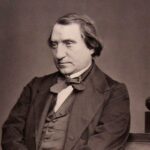The House passed a bill on July 10 that would require voters to provide proof of citizenship to vote in federal elections. The legislation, known as the Safeguard American Voter Eligibility Act, was approved in a mostly party-line vote of 221-198. Five Democrats joined all Republicans in voting for the bill, while other Democrats opposed it, citing redundancy with existing laws prohibiting noncitizen voting.
However, the measure is unlikely to pass through the Senate, and the White House has expressed opposition to the bill. Introduced by Rep. Chip Roy (R-Texas), the bill would require people to provide documentary proof of U.S. citizenship in voter registration applications for federal elections. Acceptable forms of proof include a passport, birth certificate, government-issued photo ID, and military ID.
Additionally, the bill would require states to purge their voter rolls of any current noncitizens by providing access to databases run by the Department of Homeland Security and Social Security Administration. Democrats have raised concerns that the bill could make it more difficult for natural-born and naturalized citizens to register to vote, while Republicans argue that loopholes exist that allow illegal immigrants to vote.
The White House has criticized the bill, stating that states already have safeguards in place to verify voter eligibility and maintain the accuracy of voter rolls. The administration believes the bill would not safeguard elections but instead make it harder for eligible Americans to register to vote and increase the risk of eligible voters being purged from voter rolls. Please provide an alternative version of the text.
Source link






